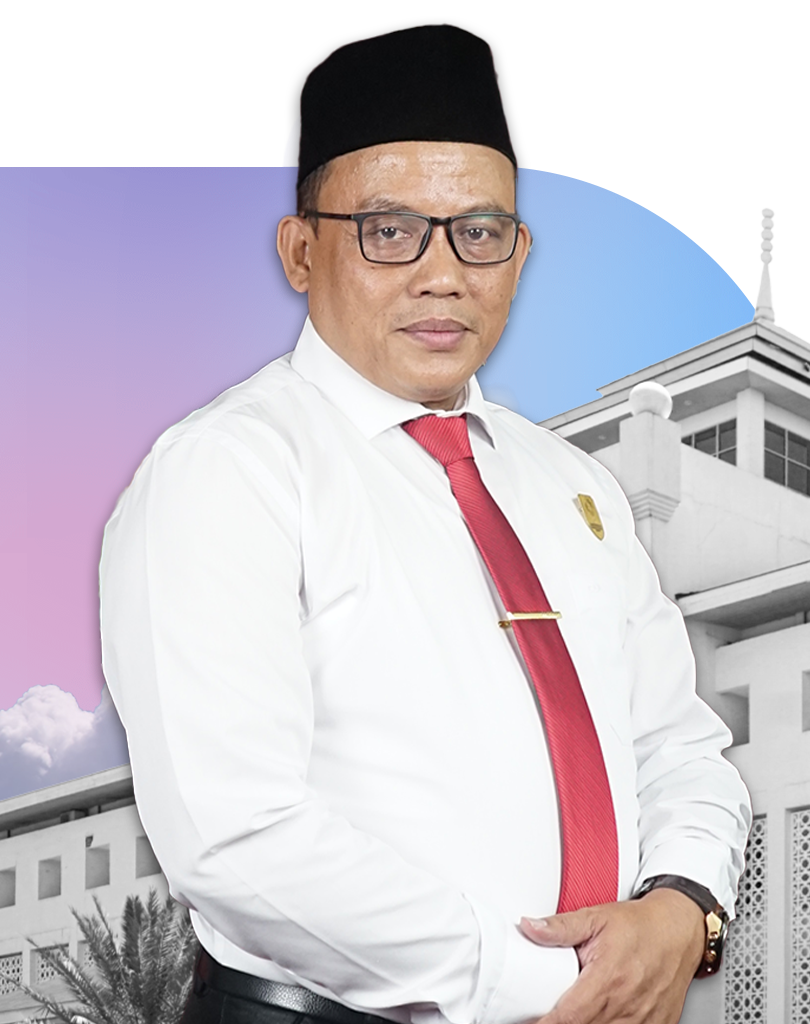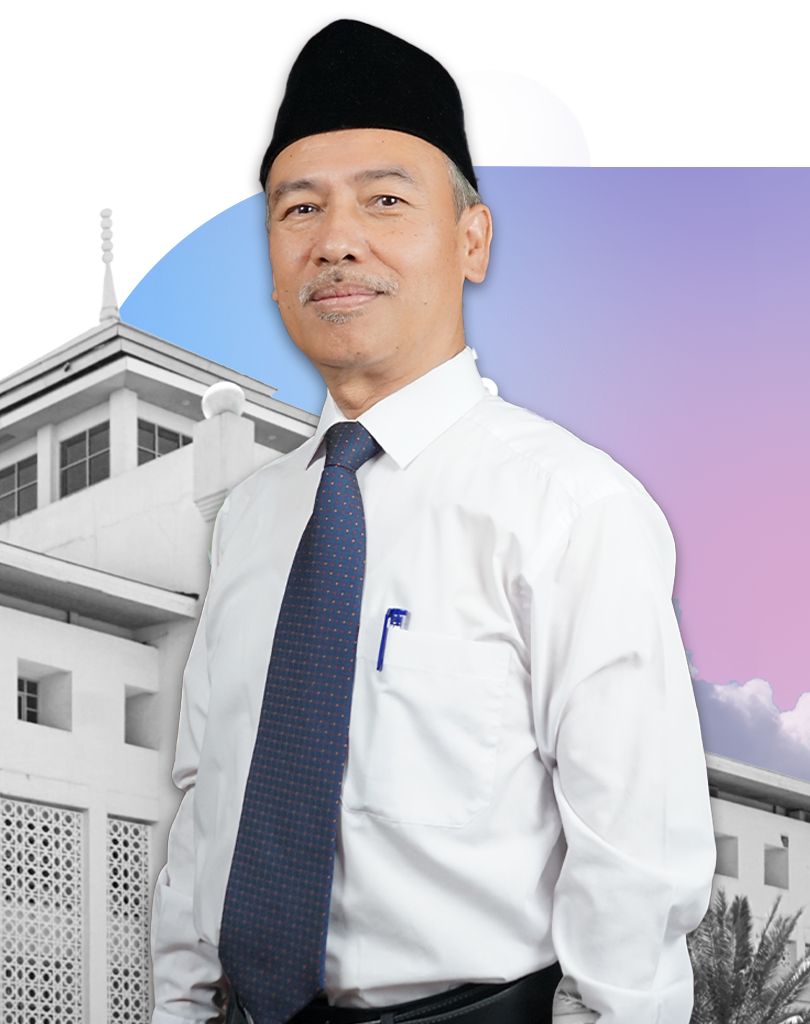
Prof. Dr. H. Badrudin, M.Ag.
Head of The Study Program
Postgraduate Doctoral Program (S3)
UIN Sunan Gunung Djati Bandung

Dr. Bambang Samsul Arifin, M.Si.
Secretary of Study Program

Facing the opportunities, challenges and demands faced by tertiary institutions including study programs, the Merdeka Learning-Independent Campus policy is one of the strategic answers that can be implemented by study programs in the administration and management of higher education because this policy encourages study programs to be more autonomous, innovative, productive , adaptive, and relevant to social dynamics, progress in science and technology, the world of industry and the world of work. 2 Therefore the study program curriculum should not be static, it must be dynamic, and adapt to the times.
To be able to respond to fast, varied and disruptive dynamics and changes, study programs in the implementation of education and learning as one of the tridharma of higher education are expected to be able to develop innovative, creative, collaborative and adaptive learning patterns and models as vehicles that can encourage and shape student abilities related to thinking skills (critical thinking, creative, computational thinking, and flexible knowledge), productive action (innovative, communicative, collaborative, complex problem solving, self-management, coordination, decision making), and the development of emotional intelligence (service orientation , negotiation skills, flexibility, agility and adaptability). Thus, study programs are required to constantly develop curricula and learning patterns or models that can realize relevant and optimal graduate learning outcomes in terms of attitudes and values, knowledge, and skills in an integrated and complete manner in line with the dynamics and demands of 21st century skills.
The implementation of the Merdeka Learning-Independence Campus curriculum in the Postgraduate Islamic Education study program at UIN Sunan Gunung Djati Bandung is an inevitability in the context of catching up with the lags it faces. By making the Merdeka Learning-Independence Campus curriculum, graduates of the Postgraduate Islamic Education study program at UIN Sunan Gunung Djati Bandung are expected to be able to meet the demands of the job market and the needs of other stakeholders and be able to take part in social life and international relations. In addition, by using the Merdeka Learning-Independence Campus curriculum as a reference in curriculum development, graduates of the Islamic Education study program Doctoral degree receive equal rights and recognition, especially in relation to further study in various countries where these countries have the same qualifications as the qualifications set.
Generic Description
In accordance with the ideology of the State and the culture of the Indonesian nation, the implementation of the national education system and job training system carried out in Indonesia at every qualification level in the IQF includes processes that build the character and personality of Indonesian people as follows:
Uphold law enforcement and have the spirit to prioritize the interests of the nation and the wider community
Specific Description
Dr. – Doktor (S3)
6 Semesters (estimated full-time study)
Gedung Pascasarjana – Kampus 2
UIN Sunan Gunung Djati Bandung
We don’t just provide students with an education and experience that prepares them for career success. We help them succeed in their careers as well as to find a field they are passionate about and dare to lead it.